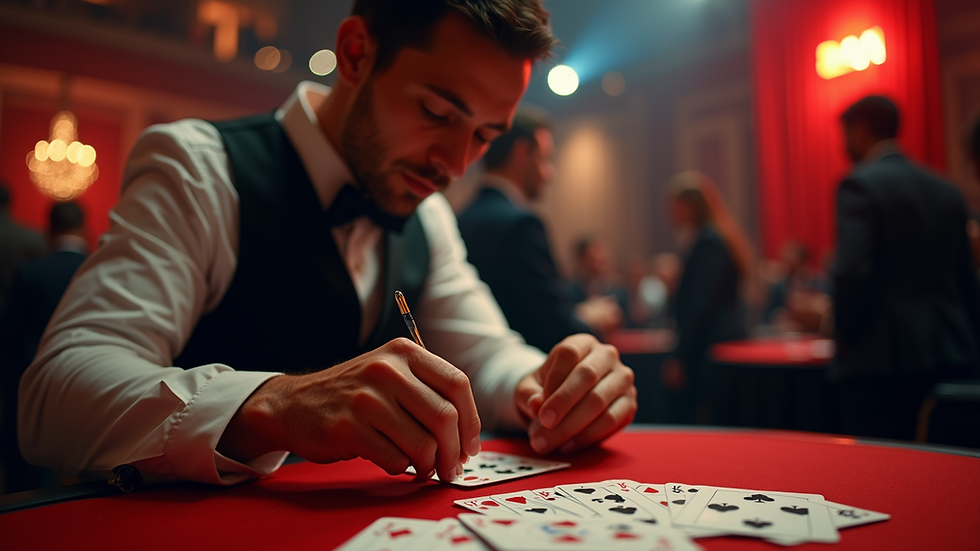The Psychology of Event Entertainment & Understanding Audience Reactions
- fteassistant
- Dec 7, 2023
- 3 min read
Updated: Mar 26, 2025

When it comes to planning a successful event, understanding the psychology of audience reactions is key. Event entertainment plays a crucial role in engaging attendees, creating an atmosphere of excitement, and leaving a lasting impression. By understanding how the human mind responds to different stimuli, event planners can curate experiences that captivate and delight their audience. In this blog, we will explore the psychology behind audience reactions and how it can be applied to enhance the entertainment value of events.
A famous event entertainment planner once said, "The key to a memorable event is to understand what makes the audience tick and to design entertainment experiences that resonate with their emotions." This quote emphasizes the importance of tapping into the psychology of your audience. Here are a few key factors to consider when planning event entertainment:
1. Emotion and engagement: Emotion is a powerful driver of human behavior. The entertainment you provide should trigger positive emotions such as joy, excitement, and awe. Engaging the audience's emotions through captivating performances, interactive activities, and storytelling elements creates a memorable experience that leaves a lasting impact.
2. The power of surprise: Surprise is a fundamental aspect of human psychology. Leveraging unexpected elements in your event entertainment can generate a sense of novelty and excitement for attendees. Surprise performances, surprising twists in the program, or even surprise giveaways can create a sense of anticipation and keep the audience engaged throughout the event.
3. Social influence: Humans are social creatures influenced by the behavior and reactions of others. Incorporating social elements in the entertainment can enhance audience engagement. For example, creating opportunities for audience participation, encouraging social interactions, or incorporating social media interactions can amplify the entertainment value and create a sense of community among attendees.
4. Sensory stimulation: The human brain is wired to respond to sensory stimuli. Incorporating visual, auditory, and tactile elements in your event entertainment can activate multiple sensory pathways, enhancing the overall experience. Immersive performances, visually stunning displays, and interactive installations can create a multisensory journey that keeps the audience engaged and enraptured.
5. Personalization: Personalization adds a touch of exclusivity and relevance to the event entertainment. Catering to the individual preferences and interests of your audience can create a sense of connection. Tailoring performances, activities, or even recommended playlists based on audience demographics or preferences can create a more personalized and engaging experience.
By understanding these psychological principles, event planners can create entertainment experiences that deeply resonate with their audience. As the renowned event entertainment planner stated, "The key to a memorable event is to understand what makes the audience tick and to design entertainment experiences that resonate with their emotions." By leveraging emotions, surprise, social influence, sensory stimulation, and personalization, event planners can create powerful entertainment experiences that captivate and delight attendees.
In conclusion, the psychology of audience reactions provides valuable insights into planning event entertainment that truly resonates with attendees. By understanding the drivers of human behavior and incorporating elements that trigger positive emotions, surprise, social interactions, sensory stimulation, and personalization, event planners can elevate the entertainment value of their events and leave a lasting impression on their audience.
Remember, the key to successful event entertainment lies in understanding the unique psychology of your audience and designing experiences that resonate with their emotions and preferences.
"The key to a memorable event is to understand what makes the audience tick and to design entertainment experiences that resonate with their emotions." - Popular event entertainment planner




Comments